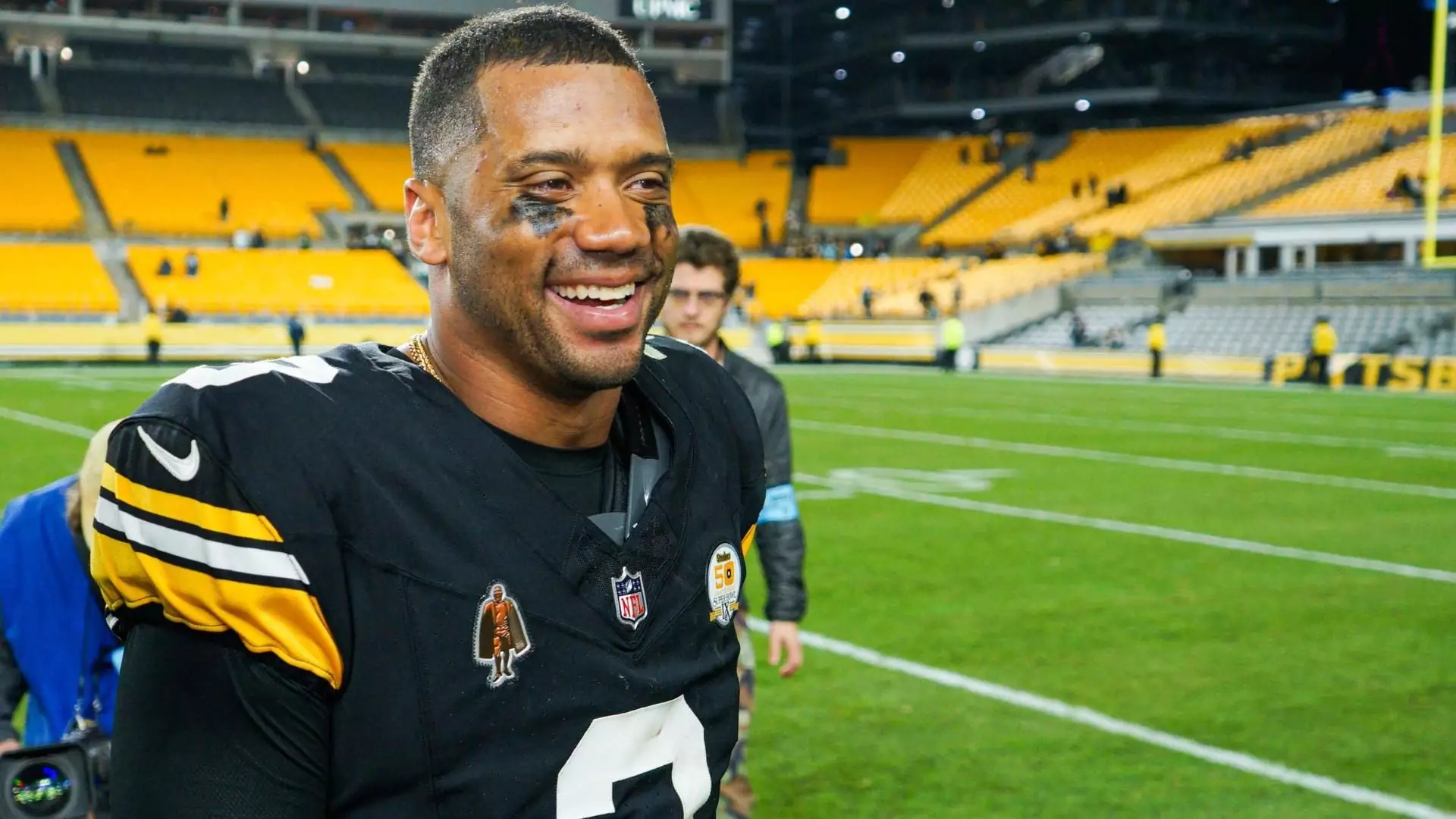In a shocking twist within the NFL landscape, the New York Giants have secured a one-year contract with Super Bowl champion Russell Wilson, valued at up to $21 million with $10.5 million guaranteed. This strategic decision marks a significant shift in the Giants’ approach as they enter a crucial season filled with high stakes and greater expectations. Wilson’s return to the MetLife Stadium, where he once celebrated victory with the Seattle Seahawks, evokes a sense of nostalgia but also raises pressing questions about the future of a franchise still searching for identity amid fluctuating quarterback dynamics.
The Giants’ decision to invest in Wilson not only reshapes their quarterback room but also effectively sidelines other contenders, such as Aaron Rodgers, from suiting up in blue this season. While Rodgers remains a high profile yet uncertain option for teams, Wilson’s arrival instills an urgency within the Giants’ strategy. In this volatile landscape, the focus now shifts to how Wilson will integrate into a lineup that includes fellow quarterback Jameis Winston and Tommy DeVito—both of whom are seen primarily as secondary options.
A Burgeoning Rivalry
The competitive atmosphere is palpable, particularly as Wilson’s contract comes just days after Jameis Winston joined the Giants on a two-year $8 million deal, which resembles more of a stopgap measure than a long-term solution. The move to bring a veteran like Wilson into the fold provides a necessary mix of experience and skill to an organization that has been in disarray, especially following the turbulent tenure of Daniel Jones. During his time in New York, Jones experienced highs and lows, ultimately leading to his release after being benched mid-season. This cycle of uncertainty not only highlights the precarious nature of NFL quarterbacking but also the pressure that the Giants face to finally nail the position.
Interestingly, despite solidifying their quarterback situation with Wilson, the Giants hold the No. 3 pick in the upcoming NFL draft. It’s a compelling paradox; they invest in a quarterback with a storied past while eyeing potential future stars. Owner John Mara has openly stated that identifying a long-term quarterback remains a critical priority, and it seems contradictory to affirm that commitment while signing a player in the twilight of his career.
What Lies Beneath the Surface?
Wilson’s arrival is layered with complexities. Having faced struggles during his last stint in Pittsburgh—with a record of 6-5, six touchdown passes, and a troubling five-game losing streak—it invites skepticism regarding whether he can reclaim former glory. Is a one-year contract a reflection of a short-term plan or merely life support for a franchise teetering between rebuilding and competing? The Giants, while seemingly emboldened by Wilson’s Super Bowl resume, may also be jumping onto a ship that’s no longer seaworthy. With the looming shadow of injuries and diminished performance, Wilson’s history raises valid concerns regarding his sustainability in this new environment.
Moreover, Wilson’s prior tenure with the Denver Broncos—a period marked by mediocrity (11-19 record) that ultimately culminated in his release—casts a long shadow. Fans are left wondering if the Giants are poised for a revival or if they are merely participating in a risky gamble that could undermine their progression. The hefty contract, scarce guarantees, and the inherent volatility of Wilson’s recent performance paint a conflicting picture that poses more questions than answers.
Leadership or Last Resort?
At 36, Wilson embodies a quandary: can he be a leader who inspires his team to greater heights, or has he become a last-resort option, filling a vacancy out of desperation? His acquisition underscores a larger debate in the league about the value of experience versus the need for youthful energy and innovation. With the pressure mounting, this season’s potential hinge on whether Wilson can not only manage a fractured Giants roster but elevate it into a competitive force.
The New York Giants’ bold move to acquire Russell Wilson encapsulates the essence of the NFL’s strategic gamesmanship. With high stakes involving both immediate performance and long-term vision, this gamble offers little room for error. As the season unfolds, fans and management alike will watch closely—hoping for resurgence while bracing for the very real possibility of disappointment that new hope often begets. The spotlight is on Wilson—not just as a player but as a symbol of what it means to wager on redemption in the unforgiving arena of professional football.


Leave a Reply